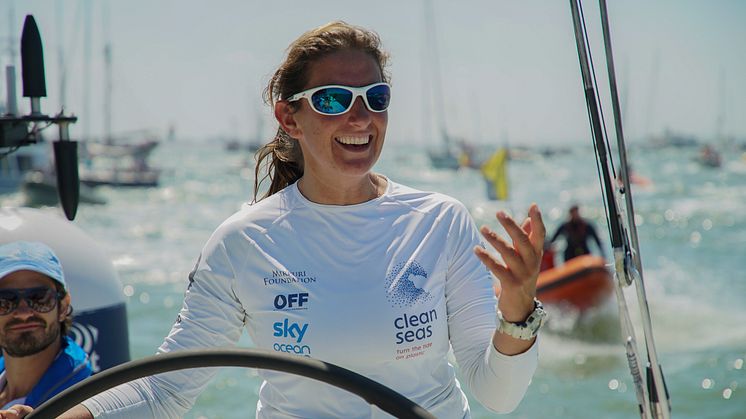
Blog post -
What's holding women back in science, technology, engineering and mathematics careers, asks Dee Caffari
As a woman who has carved out a career in a traditionally male dominated environment I am often asked for my perspective on gender equality. I generally reply that, out on the water, the elements don’t stereotype or consider whether you are male or female, it is skill and experience that make the difference. Are my experiences as someone who works on the water the same as women who work in water? The water industry (including the water purification sector) is also a male dominated environment in most sectors - from research and science through to plumbing and engineering. All these areas tend to attract more men than women, but I wanted to find out what, if anything, is holding women back from roles in these areas.
From a very young age, children have opinions about which careers are for girls and which are for boys, with girls and young women much less likely to pursue a career in the sciences. Parents play a role, as do teachers, with both being key influencers when it comes to encouraging educational choices. In a UK documentary ‘The Trouble With Women’ a group of young children were asked to draw images of a surgeon, a firefighter and an engineer and, without exception, they all drew men. Those results were not experiential, they were unconscious (or potentially conscious) bias from adult influencers in their lives. In 2015, the UK had the lowest proportion of female engineers in the EU. Clearly, there is work to be done to encourage more girls to engage with science, technology, engineering and mathematics (STEM) subjects and role models are needed to show young women that doors to a wide range of science careers are open to them.
What is interesting is that, once they are on a science related path, women appear to leave careers in these areas in disproportionate numbers to men. Whilst the reasons are varied, they are not surprising or new. Many research jobs are on short-term contracts that rely on grants for funding, some projects require relocation and, as is the case for many women, there are worries about the impact a career break for childcare will have on their career.
So we have a shortage of women coming into science careers in the first place and they are leaving in larger numbers than their male counterparts. What can we do to shift this pattern?
Perhaps there needs to be more promotion of STEM degrees and career options to young female students. One option would be to facilitate different and interesting interactive experiences. For example, a visit to a robotics lab or water treatment plant to gain some practical knowledge about where a STEM qualification can take you or what a particular career path looks like will allow students to make more informed choices.
Initiatives that bring students and young professionals who are already enjoying a science career together at events could bridge the gap. Advice and discussion between people who are passionate about their roles in technology and engineering and people that are curious about such roles can only be a positive step forward.
Are there genuinely a lack of female role models or are they out there and just blending into the background? Women who have forged successful careers in science should be celebrated and highlighted to inspire young women. Real-world success stories are huge influencers and highlight achievable goals for women already on a science career path.
Finally, do we make enough of the benefits to society of more women working in science? Inevitably, as a result of the disproportionate gender numbers, a significant amount of technology has been invented and/or developed by men. Many technological advances benefit everyone but, more women in the field would mean more brains looking at problems and coming up with solutions from a different standpoint or perspective. No one knows what inventions and advances exist waiting to be discovered, but surely the more little grey cells we can have working on our behalf, the better.
